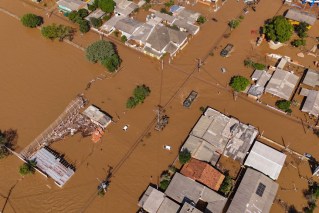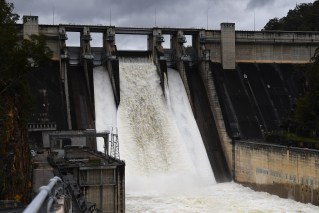Any deliberate disruption to the EU’s energy infrastructure will meet a “robust and united response”, its top diplomat says, after member states said two Russian pipelines that are churning gas into the Baltic had been attacked.
It remained far from clear who might be behind the leaks or any foul play, if proven, on the Nord Stream pipelines that Russia and European partners spent billions of dollars building.
Russia, which slashed gas deliveries to Europe after the West imposed sanctions over Moscow’s invasion of Ukraine, has also said sabotage was a possibility and that the leaks undermined the continent’s energy security.
The European Union believes sabotage probably caused the leaks detected on Monday in the Nord Stream pipelines, Josep Borrell was reported as saying by German broadcaster ntv, echoing views aired by Germany, Denmark and Sweden on Tuesday.
The EU has not named a potential perpetrator of the suspected sabotage or suggested a reason behind it.
“Any deliberate disruption of European energy infrastructure is utterly unacceptable and will be met with a robust and united response,” Borrell said.
A statement issued by Russia’s embassy in Denmark said that any sabotage on Nord Stream’s pipelines was an attack on both Russia’s and Europe’s energy security.
“The unsubstantiated accusations and assumptions that are now being made everywhere are intended to create information noise and prevent an objective and impartial investigation,” Russia’s statement said.
Denmark’s defence minister, meanwhile, said on Wednesday there was reason to be concerned about the security situation in the Baltic Sea region following a meeting with NATO General Secretary Jens Stoltenberg in Brussels.
“Russia has a significant military presence in the Baltic Sea region and we expect them to continue their sabre-rattling,” Morten Bodskov said in a statement.
In a sign of how long it might take to ascertain the full extent of the damage and the cause of the leaks, Mr Bodskov also said it might take a week or perhaps two before the areas around the damaged pipelines were calm enough to be investigated.
Denmark’s armed forces said the largest gas leak caused a surface disturbance of well over 1 kilometre in diameter, while agencies issued warnings to shipping.
Swedish Prime Minister Magdalena Andersson said on Tuesday that two blasts had been detected.
Although this did not represent an attack on Sweden, Stockholm was in close contact with partners such as NATO and neighbours such as Denmark and Germany, Ms Andersson said.
Seismologists in Denmark and Sweden said they had registered two powerful blasts on Monday in the vicinity of the leaks and the explosions were in the water, not under the seabed.
The Nord Stream pipelines have been flashpoints in an escalating energy war between capitals in Europe and Moscow that has damaged major Western economies, sent gas prices soaring and sparked a hunt for alternative supplies.
Neither pipeline was pumping gas at the time the leaks were found, but the incidents scupper any remaining expectations that Europe could receive fuel via Nord Stream 1 before winter.
Russia reduced gas supplies to Europe via Nord Stream 1 before suspending flows altogether in August, blaming Western sanctions for causing technical difficulties. European politicians say that was a pretext to stop supplying gas.
The new Nord Stream 2 pipeline had yet to enter commercial operations. The plan to use it to supply gas was scrapped by Germany days before Russia sent troops into Ukraine.
-Reuters








